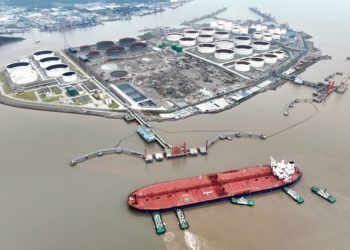It’s the middle of the night and someone’s banging on your front door. You see a flashing police light and hear a voice saying: “This is the police. Open up!”
Do you open the door?
Many Americans are asking themselves what their options are in such a situation − both legally and realistically − after what prosecutors called the “political assassination” of Rep. Melissa Hortman and her husband in a series of attacks that also left another lawmaker, Sen. John Hoffman, and his wife wounded.
The suspect in the case, Vance Boelter, 57, was dressed like a police officer, complete with a black tactical vest, and carried a flashlight as an officer would do, according to an affidavit filed in federal court and written by special agent Terry Getsch of the FBI. Boelter also was driving an SUV equipped with a fake “POLICE” license plate and “law enforcement-style emergency lights,” the affidavit said.
“This is the police. Open the door,” Boelter shouted outside at around 2 a.m. June 14, according to Hoffman’s family members, Getsch wrote in the affidavit.
They opened it.
“You’re kind of disarmed in the middle of the night, in the fog of sleep,” said George Kirkham, a criminologist, professor emeritus at Florida State University and a former police officer.
Kirkham said that even with his expert background, he probably would have opened the door, too.
“These were very, very smart people, this legislator and her husband, and I’m sure they had been the recipient of threats, and they were probably far more cautious than the average person,” he said. “It is a clarion call for all of us to be more careful.”
So, what should you do?
Discover WITNESS: Access our exclusive collection of true crime stories, podcasts, videos and more.
Police are knocking and want you to open the door
If an officer is knocking on your door, the American Civil Liberties Union recommends talking through the door and asking for identification.
“You do not have to let them in unless they can show you a warrant signed by a judicial officer that lists your address as a place to be searched or that has your name on it as the subject of an arrest warrant,” the ACLU says.
If the officer says they have a warrant, you should ask to see it through a window or, if it’s a paper copy, have them slip it under the door for proof. Many warrants these days are electronic, and police can even text it, Kirkham said.
Marc Lopez, a former prosecutor and now a defense attorney specializing in domestic violence and drunken driving cases in Indianapolis, said there are very few circumstances in which an officer will knock on your door out of nowhere and need to get inside.
Those circumstances include: pursuing a felon, hearing screaming or another sign of an emergency inside, or if they have a warrant.
“Absent those emergencies, they can’t come into your house,” he said. “I would advise anybody: Do not open your door. You have no duty to respond.”
If you feel you must respond, he said, you should avoid opening the door at all costs unless police have a warrant. If they do, he recommends asking to see it, though he pointed out that in some states, such as Indiana, officers do not have to prove they have a warrant.
“That can get kind of tricky,” he said.
Stories of justice and action across the country: Sign up for USA TODAY’s This is America newsletter.
Another option: Call 911
Minnesota police have advised a nervous public that if someone shows up at their house claiming to be police, they can call 911 to verify it’s legitimate.
“It is okay to remain in your vehicle or home and not open the window or door until you receive confirmation from dispatch,” the Richfield Police Department posted on Facebook June 14.
Kirkham agreed that it’s a good option, and as a former officer himself, that he wouldn’t mind waiting for such a call.
Lopez pointed out that some police might not be as patient. And there have been plenty of misunderstandings between police knocking on doors at night and nervous people inside who don’t know who it is.
On April 5, 2023, the New Mexico Department of Justice went to the wrong house while responding to a domestic violence call in Farmington just before midnight. The homeowner, Robert Dotson, answered the door holding a gun and officers opened fire, killing him, according to police and body camera footage.
And then there’s the case of Breonna Taylor, an unarmed woman killed by police who were serving a no-knock search warrant in Louisville, Kentucky, around midnight on March 13, 2020. The plainclothes officers used a battering ram to open the apartment as part of a drug trafficking investigation, and Taylor’s boyfriend − thinking they were being robbed − fired one shot, prompting police to spray dozens of bullets into the apartment. No drugs were found.
Should you have a gun by your door?
If you’re nervous about someone at the door, Kirkham said it’s not necessarily a bad idea to have a gun handy. He recalled one night a couple of years ago when his doorbell rang at 3 a.m.
He grabbed his pistol from the nightstand and a flashlight and stood aside from the front door. He heard a woman’s voice identify herself as police.
Kirkham turned the porch light on, looked out his peephole and saw a uniformed officer. He immediately put his gun on the floor, slid it away, and opened the door.
In light of the events in Minnesota, he said, he might think twice about doing that again so readily.
“The safest thing to do is just to dial 911.”
Contributing: N’dea Yancey-Bragg
Amanda Lee Myers is a senior crime reporter for USA TODAY. Follow her on X at @amandaleeusat.
This article originally appeared on USA TODAY: Minnesota attacks raise question: Do you have to open door to police?
The post Do you have to open the door for police? What to know in wake of Minnesota attacks. appeared first on USA TODAY.



